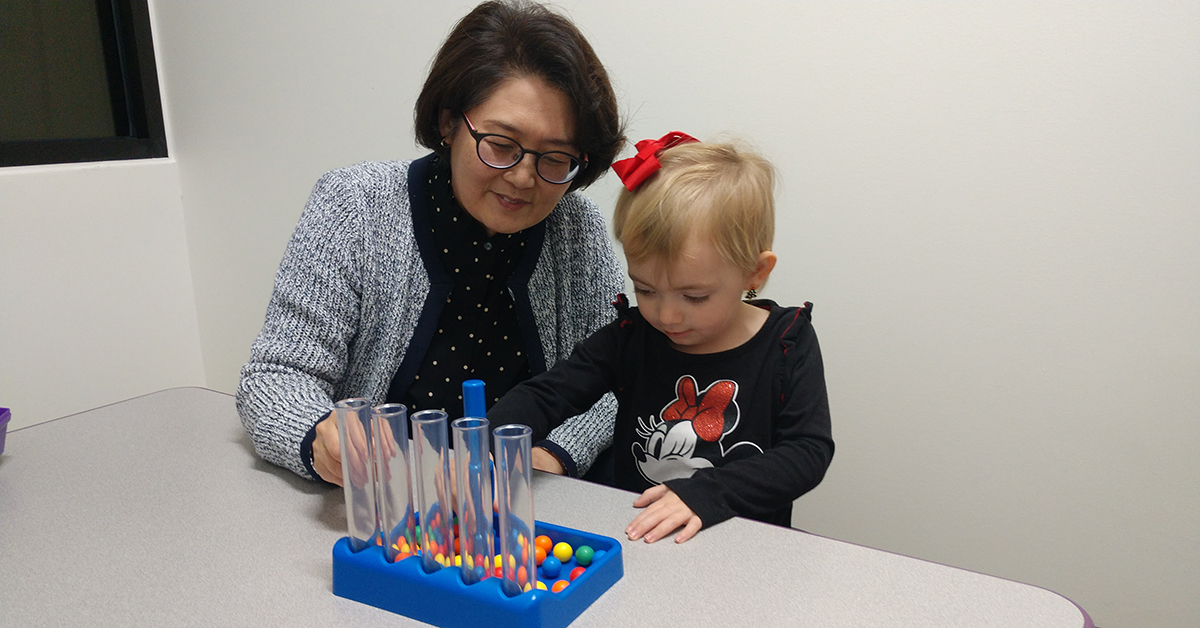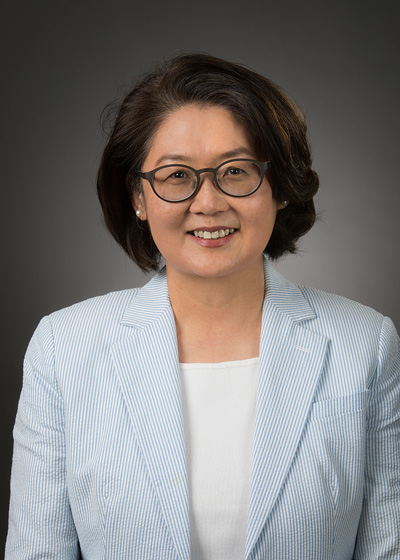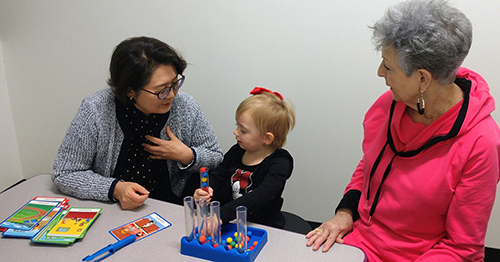TTUHSC Researchers to Study Efficacy of Telepractice in Treating Children Born with Cleft Palate

When the Individuals with Disabilities Education Act became a law in 1975, its purpose was to provide appropriate public education to all children with disabilities. However, there is a significant shortage of speech-language pathologists (SLPs) across the U.S., especially in rural areas such as West Texas. This shortage has created an ever-increasing disparity in the availability of SLPs who can work with children affected by various medical conditions such as cleft palate.
The Centers for Disease Control and Prevention estimates that 1 of every 1,700 babies in the United States is born with cleft palate, a condition that occurs when the tissue that forms the roof of the mouth fails to completely join during pregnancy.
To help address the SLP shortage and improve speech and language outcomes for children born with cleft palate, the National institutes of Health (NIH) recently awarded a one-year, $399,247 U-Series Clinical Trial grant to Sue Ann Lee, Ph.D., CCC-SLP, from Texas Tech University Health Sciences Center (TTUHSC) School of Health Professions. The grant has a potential for an additional five years, $2.82 million to be awarded in 2022.

The clinical trial grant, “Speech Intervention via Telepractice for Children with Repaired Cleft Palate: Randomized Controlled Trial and Assessment of Speech Production and Perception Skills,” is the first multi-year NIH grant awarded to the School of Health Professions. Lee, a Fulbright U.S. Scholar and President-Elect of Asia Pacific Society of Speech, Language, and Hearing, will collaborate with Joshua Demke, M.D., from the TTUHSC School of Medicine’s Department of Otolaryngology.
Lee, project director and primary investigator, and her collaborators will conduct a clinical trial to study the efficacy of applying telemedicine, more commonly known as telepractice by SLP practitioners, to treat children with cleft palate in the West Texas area. The clinical trial has three goals: to establish the efficacy of applying telepractice speech intervention for children with repaired cleft palate, to quantitatively define articulation errors using instrumentation analyses and to identify any speech perception deficits in children with cleft palate.
Lee’s research team also will include three researchers from Texas Tech University: Jo Woon Chong, Ph.D., from the Whitacre College of Engineering; Francisco Ortega, Ph.D., from the School of Art; and Kwanghee Jung, Ph.D., from the College of Education. Youkyung Bae, Ph.D, from The Ohio State University Department of Speech and Hearing Science also will join Lee’s project.
Lee has studied telepractice since she joined TTUHSC in 2010. One of the first things she discovered was the lack of SLPs in rural areas of the West Texas region, resulting in a large population of underserved children with speech-language disorders.

“I observed that many patients drove two to three hours to the Speech and Hearing Clinic at TTUHSC to receive 30 to 45 minutes of service, and then returned home,” Lee recalled. “Children were pulled out of school early or parents forfeited their vacation time to take their children to therapy sessions. The loss of time and money was tremendously costly, so I thought we should develop a new way to deliver services to the underserved children in the rural area of the West Texas.”
Because of the distances between Lubbock and many of the rural West Texas communities, Lee knew facilitating more frequent in-person treatment sessions was not a realistic solution. She believed telepractice was the best way to mitigate the SLP shortage issue and provide treatment to underserved children in rural areas, especially those born with cleft palate.
However, Lee discovered there was little available data to determine whether or not telepractice is a viable treatment option for children with speech disorders related to cleft palate. She also found two major limitations to the sparse data available: the listener's varying judgment — rather than instrumental analysis — served as the primary tool to identify and evaluate these children’s speech errors and abnormal speech patterns, and that the role speech perception plays in producing abnormal speech patterns had not been fully investigated.
“Our services have been delivered via the telepractice service delivery model under COVID-19 restrictions, but many people are skeptical about whether children learn well through the computer,” Lee said. “The goal of my study is to determine if the telepractice service delivery model is equally effective to in-person therapy.”
In her previous pilot studies, Lee found that the patients all improved their language skills, regardless of whether they participated in telepractice or in-person treatment.
Lee’s NIH clinical trial will include 50 children with cleft palate. Half of the children will receive therapy via the in-person model and the other half will receive therapy through telepractice so Lee and her team can better examine how children in each group perform following intervention. The study also will examine typically developing children.
“We also want typically developing children participating in this study to serve as a control group,” Lee explained. “I also want to compare children with cleft palate with typically developing children to characterize distinctive features of cleft palate speech and their perception abilities. Children with cleft palate frequently present with abnormal speech patterns that children with other speech-related disorders seldom experience.”
For more information about the study and how to participate, contact Lee.
Related Stories
National Academy of Inventors Names TTUHSC Faculty Senior Members
The National Academy of Inventors (NAI) has designated two current and one former TTUHSC faculty researchers as Senior Members.
TTUHSC Cancer Researcher Honored by National Academy of Inventors
C. Patrick Reynolds, M.D., Ph.D., director of the School of Medicine Pediatric Cancer Research Center at TTUHSC, has dedicated his life as a researcher to developing treatments for childhood cancers.
TTUHSC’s Hudson Set to Serve as President for Society of Clinical Research Associates
The Society of Clinical Research Associates (SOCRA) has elected Texas Tech University Health Sciences Center’s (TTUHSC) Catherine Hudson, Dr.P.H., as its president for 2025-2026.
Recent Stories
National Academy of Inventors Names TTUHSC Faculty Senior Members
The National Academy of Inventors (NAI) has designated two current and one former TTUHSC faculty researchers as Senior Members.
The John Wayne Cancer Foundation Surgical Oncology Fellowship Program at Texas Tech University Health Sciences Center Announced
TTUHSC is collaborating with the John Wayne Cancer Foundation and has established the Big Cure Endowment, which supports the university’s efforts to reduce cancer incidence and increase survivability of people in rural and underserved areas.
TTUHSC Receives $1 Million Gift from Amarillo National Bank to Expand and Enhance Pediatric Care in the Panhandle
TTUHSC School of Medicine leaders accepted a $1 million philanthropic gift from Amarillo National Bank on Tuesday (Feb. 10), marking a transformational investment in pediatric care for the Texas Panhandle.
